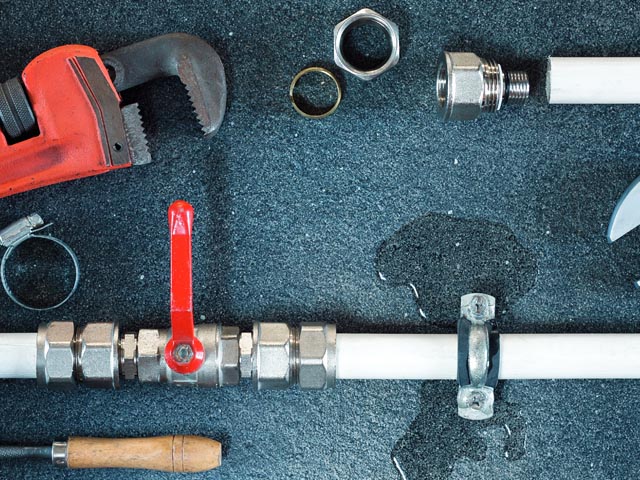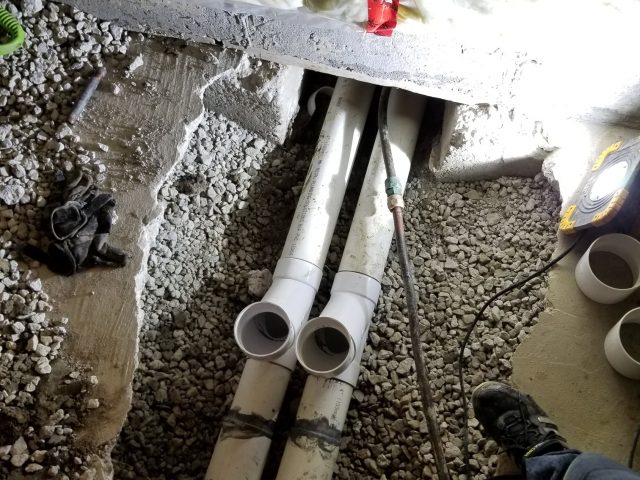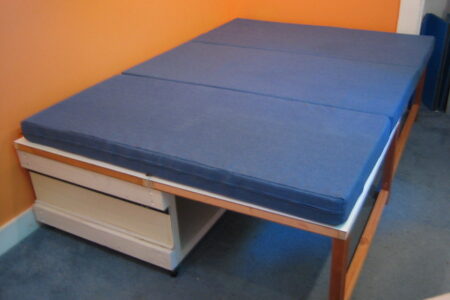Plumbing issues can strike at the most inconvenient times, leaving homeowners to decide whether to tackle the repairs themselves or call in a professional. While DIY plumbing might seem like a cost-effective and rewarding solution, it’s essential to understand the scope and potential pitfalls of taking on such tasks without professional expertise. Let’s explore the pros and cons of DIY versus professional plumbing repairs, so you can make an informed decision when the need arises.
DIY Plumbing Repairs
Advantages of DIY Plumbing
- Cost Savings: One of the most appealing aspects of DIY plumbing is the potential for cost savings. By handling minor repairs and maintenance yourself, you can avoid the expense of labor fees charged by professional plumbers.
- Immediate Action: DIY repairs allow you to address plumbing issues immediately without waiting for a professional’s availability, which can be crucial in emergencies like leaks or clogged drains.
- Skill Development: Tackling plumbing repairs on your own can be a great way to develop new skills and gain confidence in home maintenance. Over time, you may build a knowledge base that allows you to handle increasingly complex tasks.
- Satisfaction of Accomplishment: Completing a plumbing repair on your own can be immensely satisfying. There’s a certain pride in knowing you fixed the problem yourself, which can make the effort feel worthwhile.
Challenges of DIY Plumbing
- Lack of Expertise: Plumbing systems can be complex, and without proper knowledge, DIY repairs can quickly go awry. A simple mistake, such as improper sealing or incorrect pipe connections, can lead to more significant issues like water damage or even structural problems.
- Safety Risks: Plumbing involves working with water pressure, electrical components, and sometimes even gas lines. Inadequate handling of these elements can pose serious safety risks, including flooding, electrical shocks, or gas leaks.
- Time-Consuming: DIY plumbing repairs often take longer than expected, especially if you’re unfamiliar with the task at hand. This time commitment can be frustrating, particularly if you’re trying to juggle other responsibilities.
- Limited Tools and Materials: Professional plumbers have access to specialized tools and materials that may not be available to the average homeowner. Using makeshift tools or subpar materials can compromise the quality of the repair.
- Risk of Voiding Warranties: Some plumbing systems or components may come with warranties that are voided if repairs are not performed by a licensed professional. Attempting DIY repairs could lead to losing these valuable protections.
Professional Plumbing Repairs
Advantages of Professional Plumbing
- Expertise and Experience: Professional plumbers bring a wealth of knowledge and experience to every job. They can quickly diagnose issues, recommend the best solutions, and perform repairs to industry standards, ensuring the job is done right the first time.
- Access to Proper Tools and Parts: Plumbers are equipped with specialized tools and high-quality materials that enable them to complete repairs efficiently and effectively. This access often leads to longer-lasting solutions compared to DIY fixes.
- Guaranteed Work: Many professional plumbers offer guarantees or warranties on their work, providing peace of mind that if something goes wrong, they will return to fix it without additional cost.
- Compliance with Codes and Regulations: Plumbing work often needs to comply with local building codes and regulations. Professional plumbers are knowledgeable about these requirements and ensure that all work is completed in compliance, reducing the risk of future legal or insurance issues.
- Safety Assurance: With their training and expertise, professional plumbers know how to handle potentially dangerous situations, such as working with gas lines or electrical connections near water. This reduces the risk of accidents or hazardous conditions in your home.
Challenges of Professional Plumbing
- Higher Costs: The most significant downside of hiring a professional plumber is the cost. Labor charges, travel fees, and markups on materials can make professional plumbing repairs more expensive than a DIY approach.
- Scheduling and Availability: Depending on the urgency of your plumbing issue, waiting for a professional plumber to be available can be inconvenient. In emergencies, you might need to pay extra for immediate service.
- Limited Control: When you hire a professional, you’re placing your trust in someone else to complete the job to your satisfaction. Miscommunications or differing expectations can sometimes lead to frustration.
- Potential Upselling: Some plumbing companies may attempt to upsell additional services or recommend unnecessary repairs. It’s important to choose a reputable plumber and remain vigilant about the scope of the work being performed.

When to DIY and When to Call a Professional
Deciding between DIY and professional plumbing repairs often depends on the nature and complexity of the issue at hand. Here are some guidelines to help you make the best choice:
DIY-Friendly Repairs:
- Minor Leaks: Fixing small leaks, such as a dripping faucet or a loose pipe joint, is usually manageable for most homeowners with basic tools.
- Clogged Drains: Using a plunger or a drain snake to clear minor clogs in sinks, showers, or toilets is typically within the realm of DIY repairs.
- Replacing Fixtures: Swapping out showerheads, faucets, or other fixtures can be straightforward and rewarding DIY projects, as long as they don’t involve altering plumbing lines.
- Basic Toilet Repairs: Simple toilet repairs, like replacing the flapper or adjusting the float, are generally easy to handle without professional help.
When to Call a Professional:
- Major Leaks or Burst Pipes: Significant leaks, burst pipes, or any situation involving water damage should always be handled by a professional to prevent further damage and ensure proper repairs.
- Sewer Line Issues: Problems with sewer lines, such as blockages or backups, require specialized equipment and expertise that only professionals can provide.
- Water Heater Repairs: Dealing with water heaters involves electricity or gas, making these repairs potentially dangerous for inexperienced individuals.
- Gas Line Repairs: Any plumbing work involving gas lines must be performed by a licensed professional due to the high risk of explosion or carbon monoxide poisoning.
- Complex Installations: Installing new plumbing systems, rerouting pipes, or making extensive repairs are jobs best left to professionals to ensure compliance with codes and proper function. For additional tips and ideas about DIY vs. professional plumbing repairs, check out hi-techplumbingandair.com/plumbing/ to learn more.
Conclusion
While DIY plumbing repairs can be a great way to save money and learn new skills, they are not without their risks. For minor issues and straightforward tasks, going the DIY route can be a practical choice. However, for complex, potentially dangerous, or high-stakes repairs, hiring a professional plumber is the safest and most reliable option. By weighing the pros and cons of each approach and assessing the specifics of the plumbing issue, you can make a well-informed decision that best suits your needs and protects your home.






